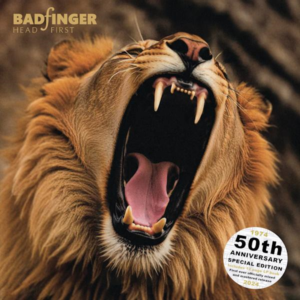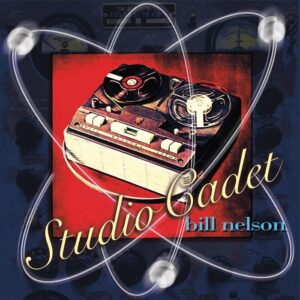Levon Helm, Founder and Drummer for The Band, Dies at 71

The country boy behind the group’s hits “The Weight” and “Up on Cripple Creek” loses his long battle with throat cancer.
Levon Helm, whose Arkansas country voice and tight-knit work on a spare drum kit helped transform one of music’s most renowned backing bands into The Band, has died after a long battle with cancer. He was 71.
“Thank you fans and music lovers who have made his life so filled with joy and celebration,” his daughter, Amy, and his wife, Sandy, said Tuesday in a statement thanking fans for their prayers. “He has loved nothing more than to play, to fill the room up with music, lay down the back beat and make the people dance. He did it every time he took the stage.”
With the rail-thin Helm as its backbone, The Band turned out such Americana hits as “The Weight,” “The Night They Drove Dixie Down,” “Up on Cripple Creek” (all with lead vocals by Helm), “Ophelia” and “Evangeline,” on which Helm played mandolin.
Other early favorites with Helm singing include “Chest Fever,” “Rag Mama Rag” and “Jemima Surrender.”
The fivesome turned out six studio albums in its prime before ending things with The Last Waltz, a concert staged on Thanksgiving Day 1976 at the Winterland ballroom in San Francisco. The all-star farewell show was turned into a documentary by Martin Scorsese.
The son of a cotton farmer, Helm at age 17 joined The Hawks, a rockabilly band fronted by Ronnie Hawkins that was popular in the American south and Canada. When the group moved its home base to Toronto, Helm and Hawkins recruited an all-Canadian lineup of musicians to join them: guitarist Robbie Robertson, bassist Rick Danko, pianist Richard Manuel and organist Garth Hudson (though everyone played many instruments).
After splitting with Hawkins in summer 1963 and playing gigs in bars throughout Canada, Texas and the Jersey Shore, The Hawks were asked by Bob Dylan — now looking for an electric sound — to serve as his backing band. The public, however, was not immediately happy with Dylan’s change of pace away from folk music, and a disenchanted Helm quit the music business for two years, working on an oil rig in the Gulf of Mexico.
After The Hawks toured with Dylan in 1966, Helm came back into the fold. Amid the laid-back atmosphere of the Catskill Mountains in Woodstock, Dylan and the musicians now going by the name The Band played daily (the sessions would years later produce the Dylan-Band album The Basement Tapes).
During this period, The Band began writing their own songs and were encouraged to go off on their own by Dylan’s manager, Albert Grossman. They signed with Capitol Records, which released The Band’s 1968 breakthrough album, Music From Big Pink. The influential LP — said to have persuaded Eric Clapton to leave Cream and head in a different direction — featured five distinct individual voices and instruments in a blend of country, folk, classical, R&B and soul.
Their sophomore effort, 1969’s The Band, was a critical and commercial hit that included “The Night They Drove Dixie Down,” and 1970’s Stage Fright featured “The Shape I’m In.” Cahoots (1971), with “Life Is a Carnival,” followed as tension between Helm and Robertson over control of the group increased.
After The Last Waltz, Helm did the first of three solo albums, Levon Helm & the RCO All Stars. The Band reformed in 1983 without Robertson, and following Manuel’s 1986 suicide, the remaining trio released 1993’s Jericho, recorded at Helm’s home studio. Danko died in 1999, and the group broke up for good.
The Band entered the Rock and Roll Hall of Fame in 1994 and received the Grammys’ Lifetime Achievement Award in 2008. At the latest Hall of Fame induction ceremony April 14, Robertson offered his “prayers and love” for the drummer.
Throat cancer and radiation treatments reduced Helm’s once-powerful tenor to a whisper, but his voice grew stronger in the ensuing years and he soldiered on. During production of 2007’s folk album Dirt Farmer — a Grammy winner and his first solo album in a quarter-century — he estimated that his singing voice was 80 percent recovered.
Two subsequent albums, 2009’s Electric Dirt and last year’s Ramble at the Ryman, also collected Grammys.
Helm also had a career as an actor. He made his film debut in Coal Miner’s Daughter (1980), playing the father of Loretta Lynn, and he performed Bill Monroe’s “Blue Moon of Kentucky” on the soundtrack. He also had roles in The Right Stuff (1983), The Three Burials of Melquiades Estrada (2005), Shooter (2007) and In the Electric Mist (2009).
Helm leaves behind Sandy, his wife of 30 years, and their daughter, Amy, a vocalist and instrumentalist who recorded with her father.
Watch Helm talk about his comeback from cancer in a 2007 CBS interview:
http://www.youtube.com/watch?v=4cnAfSsk2wc
Source: Hollywood Reporter


